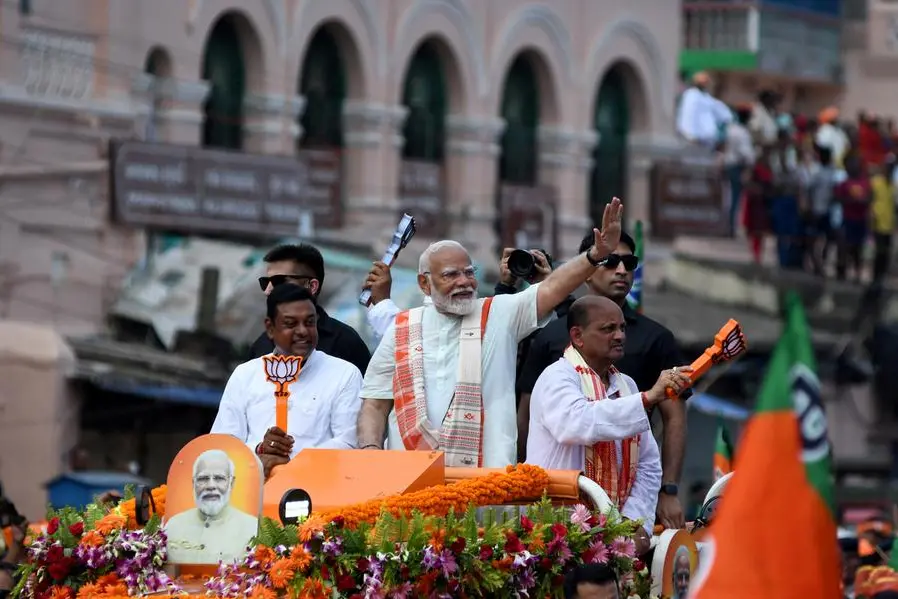Indian Prime Minister Narendra Modi appeared poised on Tuesday to maintain power at the helm of a ruling coalition, although his Hindu nationalist party experienced a setback by losing its outright majority for the first time in a decade. This unexpected outcome defied predictions of another sweeping victory.
Investors reacted with concern as emerging results indicated that Modi would, for the first time since his landslide win in 2014, rely on at least three disparate regional parties with fluctuating political allegiances. This shift introduces a degree of uncertainty into policymaking in the world’s largest democracy after a decade of Modi’s strong leadership.
Modi’s Bharatiya Janata Party (BJP) secured a majority on its own in 2014, ending India’s era of unstable coalition governments, and repeated this feat in 2019. Modi expressed gratitude for the people’s trust in the BJP-led coalition for a third term, marking it as historic. He pledged to redouble efforts and make significant decisions, outlining key focus areas such as electronics, semiconductors, defense manufacturing, renewables, and agriculture sectors.

The financial markets reacted sharply to the election results, with the NIFTY 50 and the S&P BSE Sensex both plummeting about 6%, their steepest decline on an election outcome day since 2004. Foreign institutional investors sold a record amount of shares amid the uncertainty. The rupee also depreciated against the dollar, and bond yields rose.
The initial euphoria in the markets, fueled by exit polls predicting a resounding victory for Modi and the BJP, was replaced by apprehension as the actual results unfolded. While the ruling National Democratic Alliance (NDA) was leading in a significant number of seats, the BJP’s tally fell short of expectations, particularly in the crucial state of Uttar Pradesh.
Key regional allies of the NDA reaffirmed their support for Modi, dispelling speculation about potential defections. However, the BJP’s underperformance in Uttar Pradesh, attributed to local issues overshadowing its Hindu nationalist agenda, came as a surprise.
On the opposition front, Rahul Gandhi’s Congress-led alliance exceeded expectations, raising questions about the BJP’s dominance and signaling a shift in public sentiment. Gandhi highlighted the rejection of Modi’s leadership by voters and hinted at a potential opposition alliance to form a government.
Amid the market turmoil and political uncertainty, analysts emphasized the need for policy continuity and speculated on potential economic implications, including the possibility of expansionary fiscal measures to bolster welfare and infrastructure spending.
As Modi sought a historic third consecutive term, the election results underscored the evolving political landscape in India and raised questions about the future trajectory of governance and economic policy in the country.










